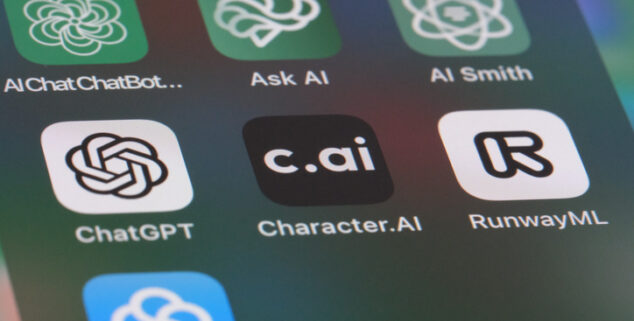Opinion
Public needs more details on OpenAI restructure proposal
 Image by Robert Way.
Image by Robert Way. OPINION – OpenAI needs the state of California to approve a corporate restructuring that would fundamentally alter its commitments to the public. But its plans are remarkably short on details, and the public deserves to know much more about how restructuring would affect them.
Chris Lehane, Vice President of Global Affairs for OpenAI, has claimed that restructuring would benefit the public. But there are many reasons for the public to feel wary.
OpenAI’s founders believed that artificial general intelligence (AGI) could have transformative benefits for humanity. But they also feared it could be catastrophically dangerous if developed irresponsibly and concentrate unprecedented levels of wealth and power in the hands of a few.
That’s why they founded OpenAI as a nonprofit, with a legally enforceable duty to put the interests of the public over those of its investors. But this commitment is now under threat.
How did we come to this point? Building cutting-edge AI is expensive. To fund its charitable mission, OpenAI adopted a nonprofit/for-profit hybrid structure. It created a for-profit limited liability corporation (LLC) to raise money from investors. But importantly, written into the LLC’s founding documents is the same requirement to put the interests of the public over those of its investors.
The LLC’s duty to the public is not just PR. It’s enforced by the original nonprofit, which is the manager of the LLC, giving it the sole power to govern the LLC’s operations. And if the nonprofit fails to protect the public’s interests, the Attorneys General of California and Delaware have the authority to step in.
On top of all that, investors’ profits are capped, with all profits above those caps going to the nonprofit to benefit the public. And AGI itself—when OpenAI creates it—would be governed by the nonprofit to benefit the public.
In short, OpenAI’s current structure is designed to ensure that its commercial goals are a means to an end: its charitable mission to ensure AGI is developed safely and benefits all of humanity.
Now, under pressure from investors, OpenAI wants to scrap all this and become an ordinary tech company, a Delaware Public Benefit Corporation (PBC). This restructuring would raise many problems.
First, the PBC would not be required—or even permitted—to put the interests of the public over those of its investors. Mr. Lehane misstates this critical point. What is unusual about a PBC is that unlike other corporations, it is permitted to “balance” the public’s interest against those of its investors. While this alone would be a demotion of OpenAI’s duties to the public, it gets worse. The only people who can enforce a PBC’s already-weakened duty to the public are its investors, and this has never happened in the history of Delaware PBCs.
Second, the nonprofit would be disempowered. The nonprofit would transition from a manager, with a duty to protect the public’s interests and the comprehensive authority to carry out that duty, to a controlling shareholder, with a duty to the PBC and its shareholders and greatly curtailed power.
Third, potentially extraordinary wealth and power would effectively be transferred from the public to OpenAI’s investors. This transfer would occur in two ways: By eliminating the caps on investors’ profits, and by removing the right of the nonprofit to govern AGI in whatever manner most benefits the public.
What about OpenAI’s duty to distribute the benefits of AI? Mr. Lehane cites the philanthropic potential of the nonprofit under their plan, but the notion that providing free ChatGPT access to children or offsetting data center energy costs constitutes meaningful charity is both misguided and self-serving.
OpenAI’s nonprofit has been absent. It has both the resources and duty to distribute AI’s benefits to the public. OpenAI has never explained why the restructuring would better enable the nonprofit to pursue philanthropic initiatives that both capture the promise and address the risks of AI.
That’s one side of the ledger, but let’s consider the other side: The restructuring would undoubtedly make it easier for OpenAI to raise money, capture market share, and build AI products even faster than today. The charitable interpretation of OpenAI’s motive to restructure is that it genuinely believes its commercial success is the best way to benefit the public. The cynical interpretation is that commercial goals are no longer a means to its charitable ends, but have become the ends themselves.
The public should decide for itself whether exchanging the public-interest protections in OpenAI’s current structure for a wealthier and more-competitive OpenAI, on balance, advances their interests.
Page Hedley, formerly OpenAI’s Policy and Ethics Advisor, signatory of the Not for Private Gain open letter. Orson Aguilar, President and CEO, LatinoProsperity, signatory of the California Nonprofit & Labor Coalition.
Want to see more stories like this? Sign up for The Roundup, the free daily newsletter about California politics from the editors of Capitol Weekly. Stay up to date on the news you need to know.
Sign up below, then look for a confirmation email in your inbox.

Leave a Reply